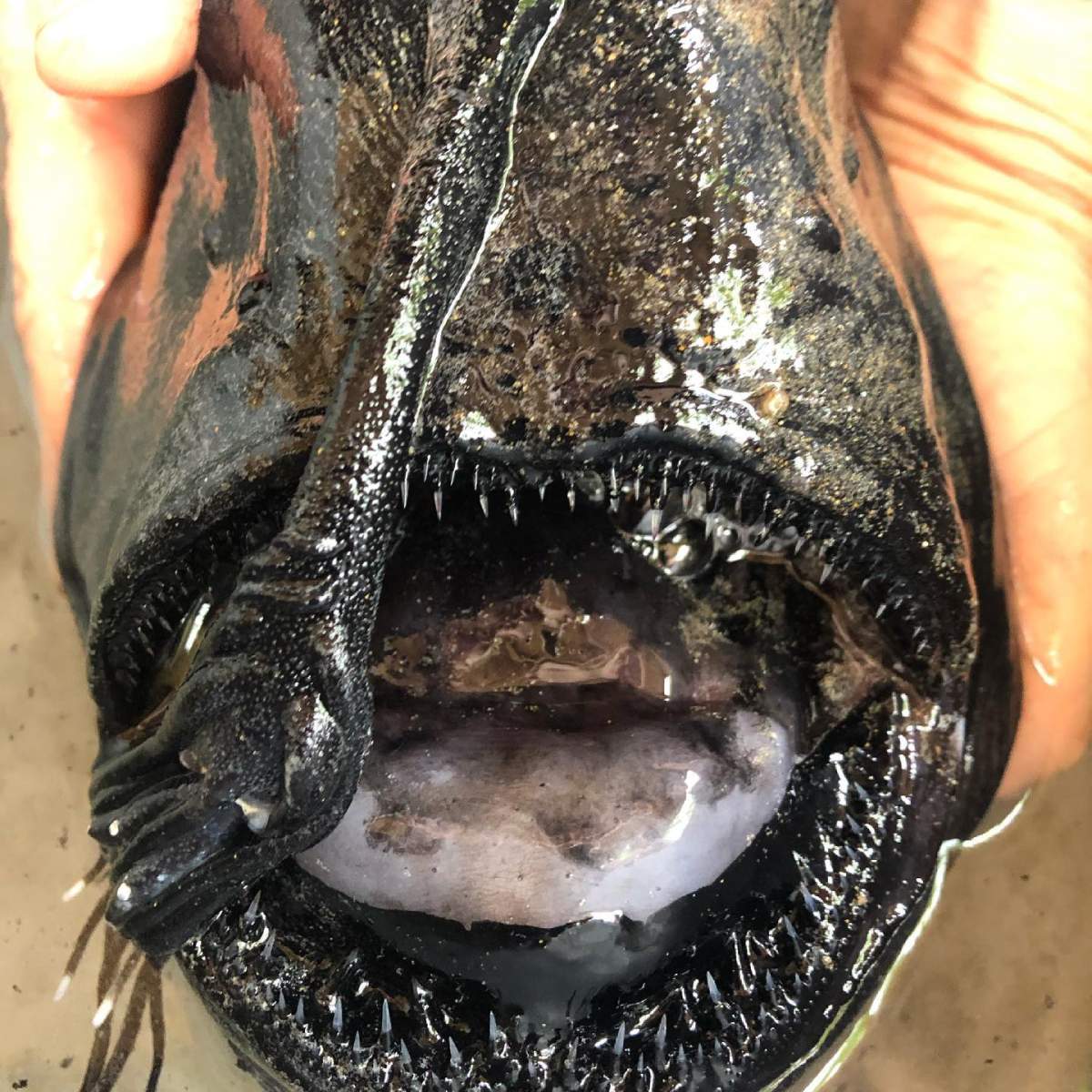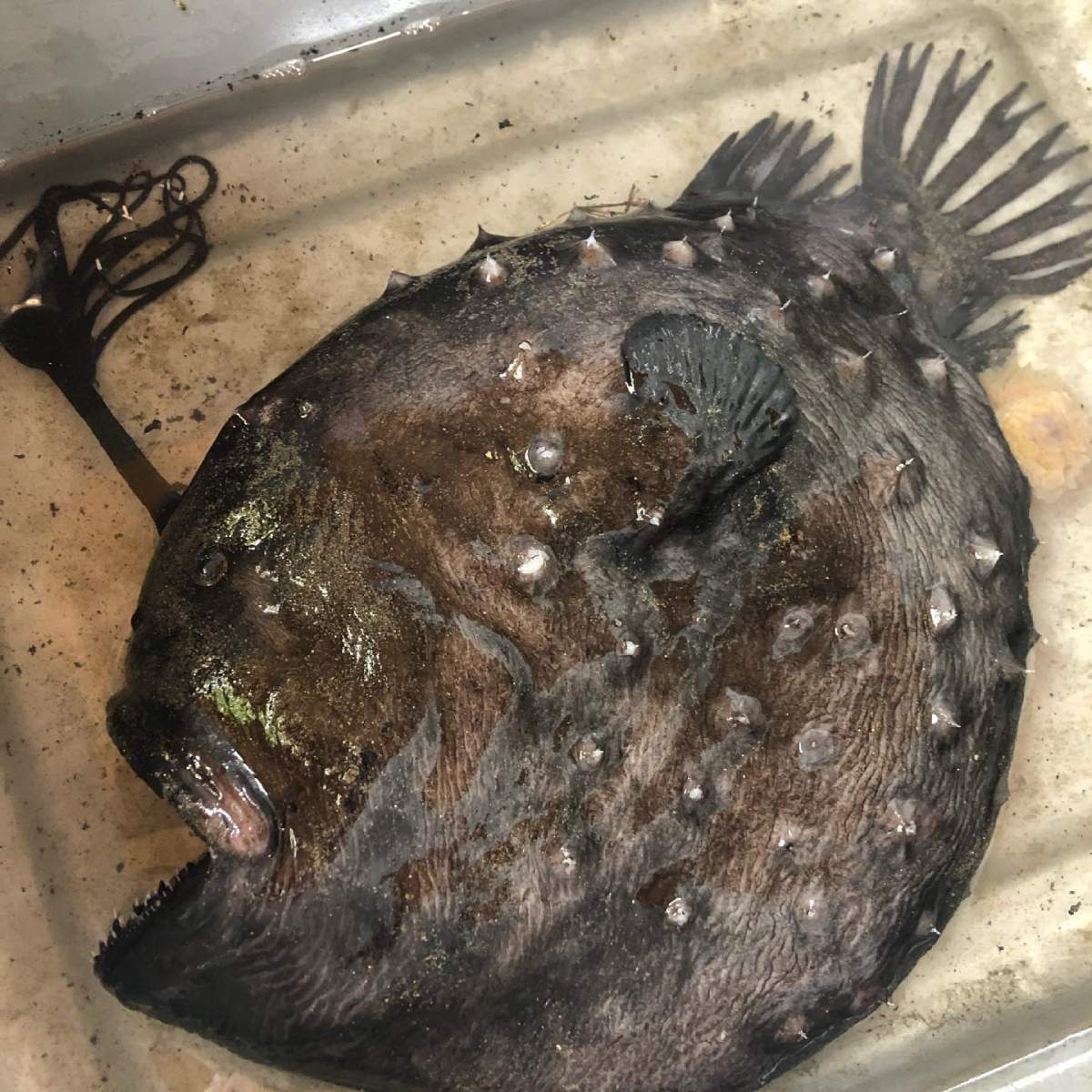A terrifying predator from the darkest parts of the ocean has been found dead on the sunny shores of California, in a rare and stunning discovery that local park officials are celebrating on social media.

The all-black monstrosity is an angler fish — a type of deep-sea predator with a bioluminescent lure that hangs in front of its mouth, which it uses to hypnotize prey in the near-total blackness of the deep ocean. Disney fans might recognize the angler fish as the creature that nearly ate Dory in Pixar’s Finding Nemo.
This particular species is known as a Pacific football fish, and it’s typically found at depths of about 900 metres in the ocean, according to officials at Crystal Cove State Park in southern California. The fish have translucent, glass-like needles for teeth, and are capable of swallowing prey as large as their own bodies.
A lucky beachgoer stumbled upon the very out-of-place football fish on Friday morning along the shore, the park said in an Instagram post.

Get daily National news
“To see an actual angler fish intact is very rare and it is unknown how or why the fish ended up on shore,” the park said.
Officials say the 46 cm (18-inch) specimen must be a female, because only the females grow to such a size. Male football fish are “sexual parasites” that only reach about 2.5 cm (1 inch) long, and live only to reproduce with females. A male will latch onto a female with its teeth and then turn into a sperm factory until it dies.
The fish are common in the darkness where they live, but it’s extremely rare to find them washed up onshore.
This particular specimen was transferred to the California Department of Fish and Wildlife, ABC 30 reports. It’s expected to be used for research or educational purposes in the future.
Park officials celebrated the find as an example of the “strange and fascinating fish” that live in the park’s marine protected area.
“As scientists continue to learn more about these deep sea creatures, it’s important to reflect on how much is still to be learned from our wonderful ocean,” they wrote.










Comments
Want to discuss? Please read our Commenting Policy first.